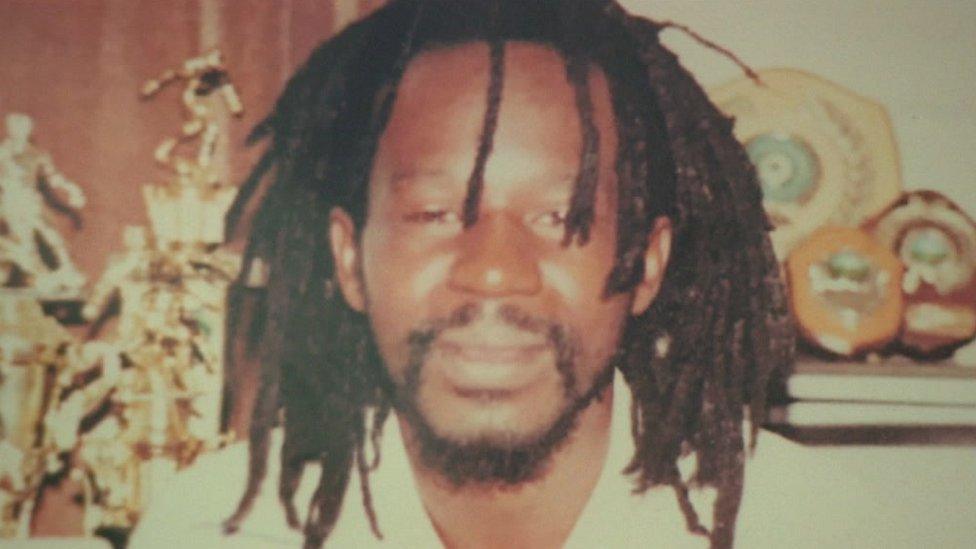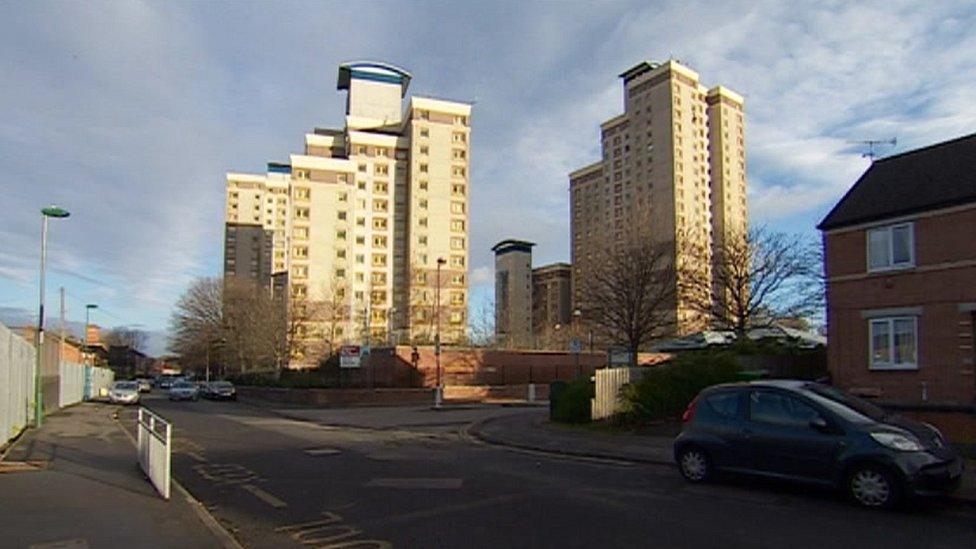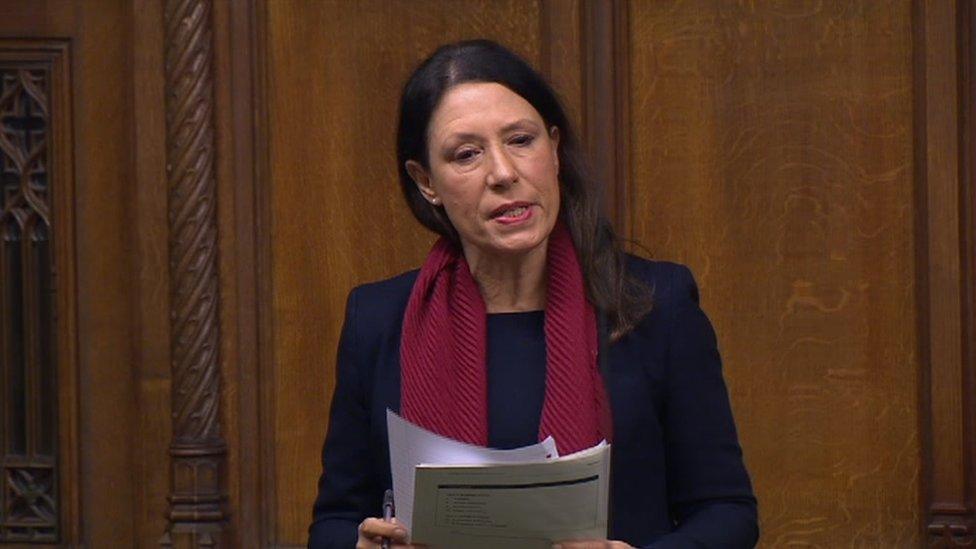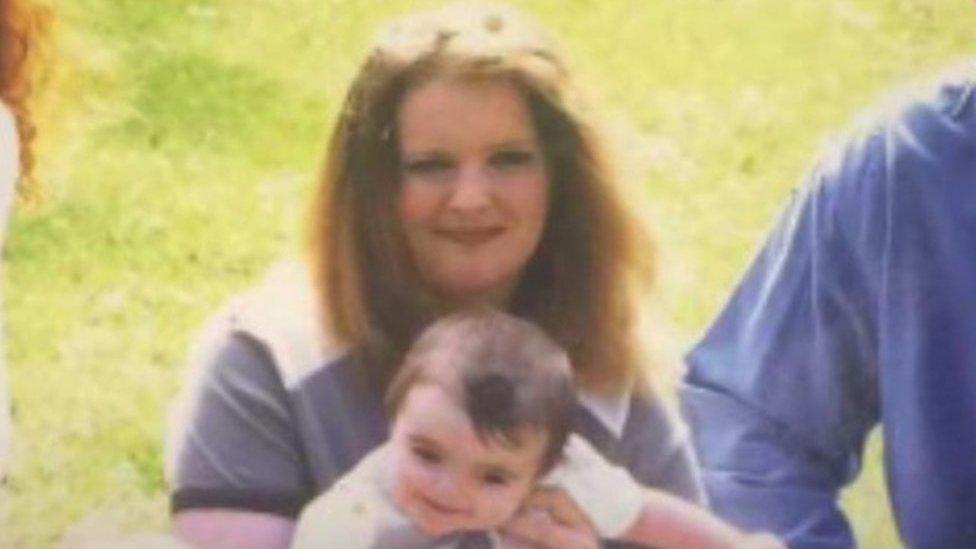Errol Graham death: Nottingham man starved after benefits stopped
- Published

Errol Graham had a history of depression which included an overdose
Relatives of a man who starved to death after his benefits were stopped have said the system is "not fit for purpose".
Errol Graham, 57, weighed four-and-a-half stone (30kg) when his body was found by bailiffs who broke into his Nottingham council flat to evict him.
An inquest found his loss of income was likely to have "caused huge distress".
His daughter-in-law Alison Turner said it was "heartbreaking... it's horrific for someone to die like that."
The case was raised in the Commons by Debbie Abrahams MP, where she called for an independent inquiry into cases where people had died after Department for Work and Pensions (DWP) reviews of their care.

Mr Graham's last contact with officials was when approached about rent arrears
The inquest into Mr Graham's death in June 2018 heard he'd had a history of depression.
His GP and the Nottinghamshire Healthcare NHS Trust agreed to have him sectioned in 2015, but he returned home to Pine View flats, Radford after a matter of days.
After this he was rarely seen, missing several GP appointments and refusing approaches from mental health teams.
Mr Graham also ignored repeated contact from the DWP and his employment and support allowance (ESA) was stopped in August 2017. This also affected his housing benefit, which ceased on 10 October.
'No food in the flat'
The last official contact was with housing provider Nottingham City Homes, which heard him shouting and punching a door during a visit in February 2018.
PC Emily Dunn told the inquest there were no signs Mr Graham had been injured but he "looked very thin".
She added there was no food in the property, other than a couple of tins of fish in the cupboard which were five years out of date.
The flat had no gas and probably no electricity, the inquest heard, with "significant mail" by the front door.
The medical cause of death was recorded as starvation.
Assistant coroner Dr Elizabeth Didcock said: "The sudden loss of all income, and the threat of eviction that followed from it, will have caused huge distress and worry, and significant financial hardship.
"It is likely that this loss of income, and housing, were the final and devastating stressors, that had a significant effect on his mental health.
"The safety net that should surround vulnerable people like Errol in our society had holes within it."

MP Debbie Abrahams said the treatment of some claimants was a "serious concern"
Miss Turner told the BBC: "It is heartbreaking, horrific, for someone to die like that. The failure he suffered, he didn't deserve it.
"It is shocking. The system is not fit for purpose.
"He was without money for six to eight months.
"Errol could not physically bring himself to talk to strangers or ask for that level of help and if he hadn't have lost it he would still be here today."
Sophie Corlett, from mental health charity Mind, said: "It is the most vulnerable who we hear are slipping through the net.
"This gentleman and many people have lifelong conditions that are unlikely to change and yet they are recalled again and again for face to face assessments which people find very challenging."
The DWP said it was establishing a serious case panel to review its work.
A spokesman added: "This is a tragic, complex case and our sympathies are with Mr Graham's family."

Follow BBC East Midlands on Facebook, external, Twitter, external, or Instagram, external. Send your story ideas to eastmidsnews@bbc.co.uk, external.
- Published13 May 2024

- Published10 June 2019

- Published30 December 2019
